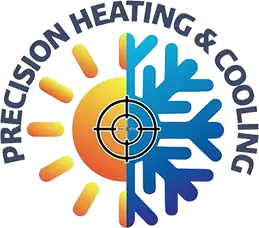Choosing the right AC installation for your home is a critical decision that can impact your comfort and energy bills. With various options available, it is essential to understand the differences between systems such as Central AC, Ductless AC, and Heat Pumps. Each system offers unique advantages and considerations that must align with your home’s needs and budget.
Understanding Your AC Installation Options
When selecting an AC system for your home, understanding the available options is crucial. The three primary types are Central AC, Ductless AC, and Heat Pumps. Central AC systems are the traditional choice, distributing air through a series of ducts. This system is ideal for cooling large spaces efficiently but may require significant space and existing ductwork.
Ductless AC systems, also known as mini-split systems, offer flexibility and are perfect for homes without existing ducts. These systems are easier to install and can be tailored for individual room comfort. They save energy by allowing you to cool only specific zones instead of the entire house. However, they may come with a higher upfront cost compared to other options.
Heat Pumps are versatile as they provide both heating and cooling. This dual functionality can be beneficial in moderate climates. They are energy-efficient and environmentally friendly but may be less effective in extreme weather conditions.
Energy efficiency is a key consideration regardless of the system. Look for units with high Seasonal Energy Efficiency Ratios (SEER) and Energy Star ratings. These indicators ensure that your AC unit not only cools effectively but also minimizes power consumption, leading to long-term savings.
Factors to Consider Before Installation
Before choosing an AC installation, assess several essential factors to ensure the system’s effectiveness and efficiency. Start by evaluating your home’s size, layout, and insulation. Larger homes may require more robust systems like Central AC, whereas smaller or uniquely designed homes might benefit from the flexibility of ductless systems.
Energy efficiency ratings are another critical factor. Opting for high-efficiency models can significantly impact your energy consumption and reduce your carbon footprint. Consider the environmental impact of your choice, favoring systems that align with sustainable practices.
Budget considerations are crucial in determining the right system. While initial costs vary between systems, it’s vital to weigh these against potential long-term savings on energy bills. Investing in a system with a higher initial cost but better efficiency can lead to significant savings over time. Additionally, factor in any available rebates or incentives for energy-efficient installations.
In summary, understanding these elements ensures that the AC system you select will provide optimal comfort and efficiency for your home. Engaging our professionals can help you navigate these choices, ensuring a tailored fit for your unique requirements.
Importance of Regular AC Maintenance and When to Seek Help
Regular maintenance plays a crucial role in ensuring the efficiency and longevity of your AC system. Simple tasks, such as changing air filters monthly and keeping the outdoor unit free from debris, can significantly enhance performance. Checking the thermostat settings and inspecting refrigerant levels are also essential for optimal operation.
Knowing when to seek professional help is just as important. If you notice unusual noises, reduced airflow, or an increase in energy bills, it may be time for AC repair. Sometimes, these issues might indicate that an AC replacement is necessary, especially if the system is outdated or has frequent breakdowns.
Enlisting our technicians for routine AC service ensures thorough inspections and timely interventions. Their expertise allows them to identify problems early, preventing costly repairs later. Regular professional maintenance not only improves system efficiency but also prolongs the unit’s lifespan.
Enhancing Your System with Additional Services
In addition to a robust AC system, consider enhancing your home’s air quality through additional services. Whole home air purifiers, for instance, can effectively reduce airborne pollutants, providing cleaner and healthier indoor air. This is particularly beneficial for households with allergies or asthma.
Air duct cleaning is another service that supports efficient AC operation. Clean ducts facilitate unobstructed airflow, ensuring that your system doesn’t overwork and ultimately prolonging its life. This service can also contribute to better indoor air quality by removing dust and contaminants.
Combining services like heat pump installation with an existing AC system can offer seamless climate control throughout the year. Heat pumps can efficiently manage both heating and cooling, providing a versatile solution for your home. Whether you’re looking to optimize your home’s comfort or maximize energy savings, these additional services can significantly enhance your HVAC system’s effectiveness.
Conclusion
Choosing the right AC installation is about more than comfort—it’s about making a smart, sustainable investment for your home. By understanding the various systems available, assessing key factors before installation, maintaining your equipment, and enhancing your system with supplementary services, you can create an optimal indoor environment. Each decision made with care ensures that your home remains a haven of comfort across every season. Engaging with our professionals not only guarantees the right system choice but also provides continued support and maintenance, ensuring peak performance for years to come.
Ensure your home is ready for any season with precise climate solutions. Our team at Precision Heating and Cooling is dedicated to offering tailored AC and additional air quality services to meet your unique needs. Contact us today to schedule your AC installation in San Jose and take the first step towards a more comfortable and energy-efficient home.







